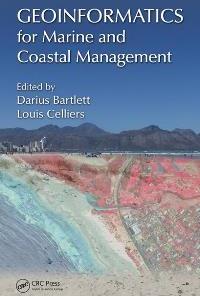CSIR principal researcher Dr Louis Celliers has co-edited a new book and valuable resource in the management of the oceans, seas and coasts of the world.
Titled “Geoinformatics for marine and coastal management”, the book responds to the 14th Sustainable Development Goal: Conserve and sustainably use the oceans, seas and marine resources. The book represents an important stepping stone in the journey into a better future, where sophisticated analytical frameworks are evolving to probe and determine the interrelationships of the oceans.

“The CoastGIS series, which was held for the first time in Africa – and hosted by the CSIR in April 2015, resulted in the opportunity for the content of this book to take shape, and my modest contribution to making it a reality,” says Celliers, who edited the book along with Darius Bartlett of the University of College Cork, Ireland.
The book is about the oceans, seas and coasts of the world. It points out that the oceans have multiple stakeholders, ranging from academics with a professional interest, to fishermen for economic gain and the proverbial man on the street consuming a can of tuna inland. Thus, an integrated and interdisciplinary effort is required to manage the oceans.
The authors present a comprehensive overview of the field of geoinformatic applications in marine management, covering key issues and debates with specific case studies illustrating real-world applications of geographic information systems (GIS) technology. CSIR senior researcher Dr Melanie Lück-Vogel is one of the authors of the book. In the chapter, titled “Recent developments in remote sensing for coastal and marine applications,” she makes the case for remote sensing as a tool, which offers assistance in monitoring coastal environments. She says, “Remote sensing offers simultaneous or near-simultaneous capture of data for an extensive area of ground, which can be important for coastal management purposes given the length of many countries’ coastlines”.
Geoinformatics for marine and coastal management provides a timely and valuable assessment of the current state of the art geoinformatics tools and methods for the management of marine systems. The book focuses on the cutting-edge coverage of a wide spectrum of activities and topics such as a GIS-based application of drainage basin analysis, the contribution of ontology to marine management, geoinformatics in relation to fisheries management, hydrography, indigenous knowledge systems, and marine law enforcement.
This "box of tools" serves as a long-term resource for coastal zone managers, professionals, practitioners, and students on the management of oceans and the coastal fringe, promoting the approach of the sustainable and integrated use of oceans to maximise opportunities while keeping risks and hazards to a minimum.
The book is available through the CSIR library services.
Contact Person: Dr Louis Celliers, @email,